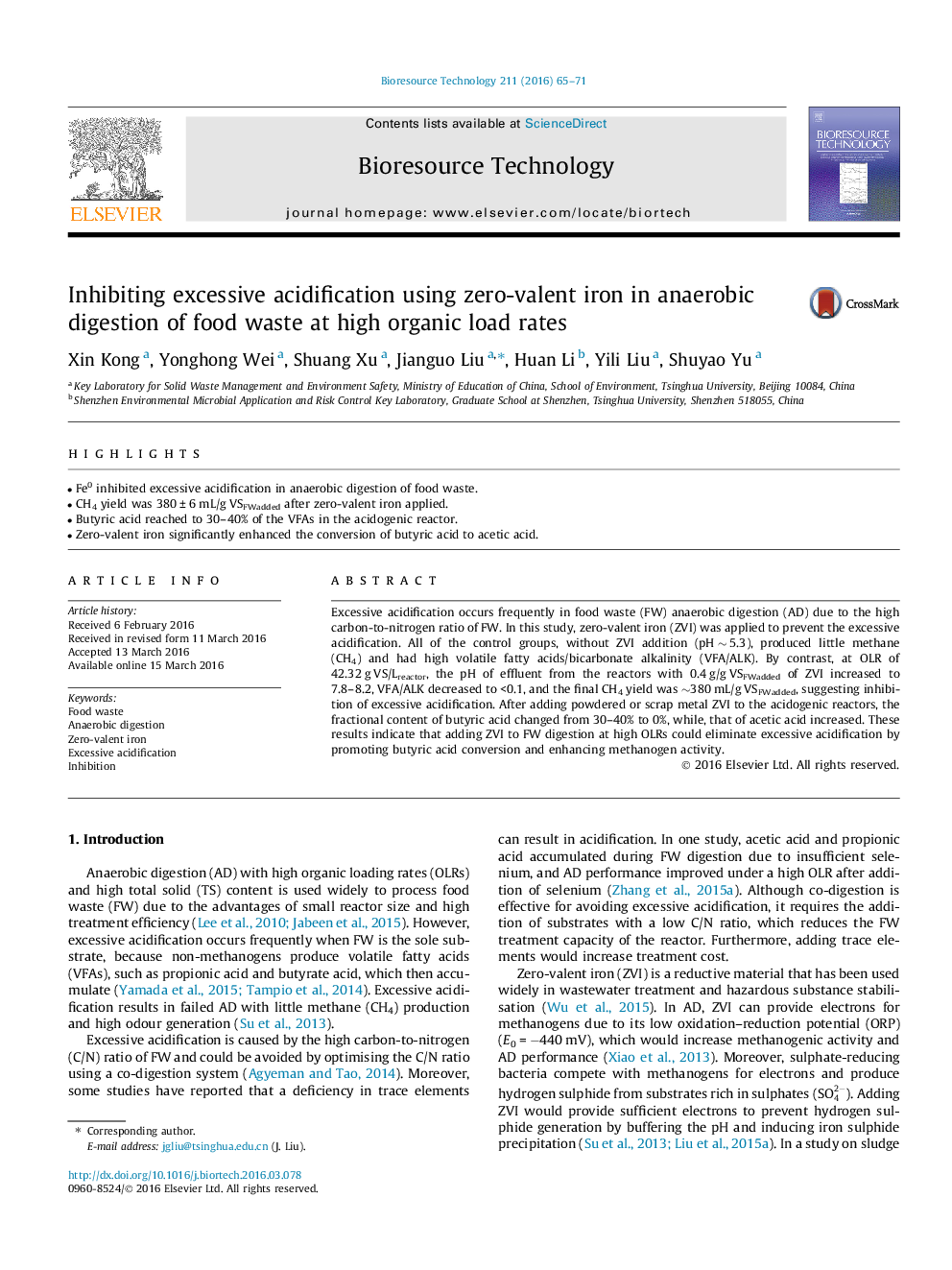| Article ID | Journal | Published Year | Pages | File Type |
|---|---|---|---|---|
| 7071515 | Bioresource Technology | 2016 | 7 Pages |
Abstract
Excessive acidification occurs frequently in food waste (FW) anaerobic digestion (AD) due to the high carbon-to-nitrogen ratio of FW. In this study, zero-valent iron (ZVI) was applied to prevent the excessive acidification. All of the control groups, without ZVI addition (pH â¼Â 5.3), produced little methane (CH4) and had high volatile fatty acids/bicarbonate alkalinity (VFA/ALK). By contrast, at OLR of 42.32 g VS/Lreactor, the pH of effluent from the reactors with 0.4 g/g VSFWadded of ZVI increased to 7.8-8.2, VFA/ALK decreased to <0.1, and the final CH4 yield was â¼380 mL/g VSFWadded, suggesting inhibition of excessive acidification. After adding powdered or scrap metal ZVI to the acidogenic reactors, the fractional content of butyric acid changed from 30-40% to 0%, while, that of acetic acid increased. These results indicate that adding ZVI to FW digestion at high OLRs could eliminate excessive acidification by promoting butyric acid conversion and enhancing methanogen activity.
Related Topics
Physical Sciences and Engineering
Chemical Engineering
Process Chemistry and Technology
Authors
Xin Kong, Yonghong Wei, Shuang Xu, Jianguo Liu, Huan Li, Yili Liu, Shuyao Yu,
